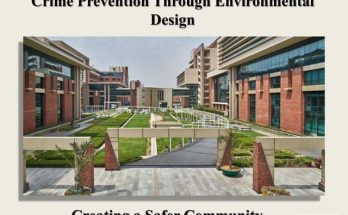Introduction to Environmental Science
Environmental Science is an interdisciplinary field that integrates physical, biological, and information sciences to study the environment and the solutions to environmental problems. It encompasses the study of the natural world, the impacts of human activity on the environment, and the development of strategies to mitigate these impacts. Key disciplines within environmental science include ecology, biology, physics, chemistry, geology, atmospheric science, and geography.


Core Areas of Environmental Science
Ecology and Biodiversity
- Ecosystem Functioning: Understanding how ecosystems work, including energy flow, nutrient cycling, and the interactions between organisms.
- Biodiversity Conservation: Studying the variety of life in all its forms and the measures needed to preserve it.
- Habitat Restoration: Efforts to restore degraded ecosystems to their natural state.
Climate Science
- Climate Change: Investigating the causes and effects of climate change, including global warming, changes in weather patterns, and sea level rise.
- Greenhouse Gases: Researching the sources, sinks, and atmospheric dynamics of greenhouse gases like carbon dioxide and methane.
- Mitigation and Adaptation: Developing strategies to reduce greenhouse gas emissions and adapt to the impacts of climate change.
Pollution and Waste Management
- Air and Water Pollution: Studying the sources, transport, and effects of pollutants in the air and water, and developing technologies to reduce pollution.
- Solid Waste Management: Strategies for managing municipal, industrial, and hazardous waste to minimize environmental and health impacts.
- Soil Contamination: Investigating the sources and effects of soil pollution and methods for soil remediation.
Natural Resource Management
- Sustainable Use: Ensuring the sustainable use of natural resources such as water, minerals, forests, and fisheries.
- Conservation Strategies: Protecting natural resources through conservation policies and practices.
- Renewable Resources: Promoting the use of renewable resources and the development of sustainable energy sources.
Environmental Policy and Management
- Regulatory Frameworks: Understanding the laws and regulations that govern environmental protection.
- Environmental Impact Assessment (EIA): Processes for evaluating the environmental impacts of proposed projects.
- Sustainable Development: Integrating economic development with environmental protection and social equity.
Human Health and the Environment
- Toxicology: Studying the effects of toxic substances on human health.
- Epidemiology: Investigating the relationship between environmental factors and the incidence of diseases.
- Environmental Justice: Addressing the disproportionate impact of environmental hazards on marginalized communities.
Recent Updates in Environmental Science
Climate Change and Renewable Energy
- Net-Zero Emissions: Many countries and companies are committing to net-zero greenhouse gas emissions by mid-century. This involves transitioning to renewable energy sources like wind, solar, and hydropower, and investing in carbon capture and storage technologies.
- International Agreements: The 2021 United Nations Climate Change Conference (COP26) resulted in the Glasgow Climate Pact, which aims to accelerate action towards the goals of the Paris Agreement.
Biodiversity and Conservation
- Global Biodiversity Framework: The Convention on Biological Diversity’s Post-2020 Global Biodiversity Framework sets targets to protect biodiversity, including conserving 30% of the world’s land and marine areas by 2030.
- Rewilding Projects: There is an increasing focus on rewilding, which involves restoring ecosystems to their natural state and reintroducing native species.
Pollution Control and Waste Management
- Plastic Pollution: Efforts to combat plastic pollution include bans on single-use plastics, initiatives to clean up oceans, and the development of biodegradable alternatives.
- Circular Economy: Promoting a circular economy where products are designed for reuse, repair, and recycling to reduce waste and resource consumption.
Sustainable Agriculture
- Regenerative Agriculture: Practices that restore soil health, enhance biodiversity, and sequester carbon are gaining traction. These include cover cropping, no-till farming, and agroforestry.
- Precision Agriculture: The use of technology, such as drones and AI, to optimize farming practices and reduce environmental impacts.
Environmental Technology and Innovation
- Green Technologies: Innovations in green technology, such as electric vehicles, smart grids, and energy-efficient buildings, are essential for reducing environmental impacts.
- Artificial Intelligence: AI is being used to monitor environmental changes, predict natural disasters, and optimize resource management.
Environmental Policy and Governance
- Green New Deal: Some regions are implementing policies inspired by the Green New Deal, which aims to address climate change and economic inequality simultaneously.
- Corporate Responsibility: Businesses are increasingly adopting environmental, social, and governance (ESG) criteria to measure their sustainability performance.
Significance and Gains of Environmental Science
Informed Decision-Making
- Environmental science provides the knowledge and tools needed to make informed decisions about environmental management and policy.
- Data-driven insights help governments, businesses, and communities implement effective solutions to environmental problems.
Human and Ecological Health
- By understanding the interactions between human activities and the environment, we can develop strategies to protect human health and preserve ecosystems.
- Reducing pollution and conserving natural resources enhances the quality of life and supports biodiversity.
Sustainable Development
- Integrating environmental science with economic and social planning ensures that development is sustainable and equitable.
- Promoting renewable energy and sustainable practices reduces the ecological footprint and supports long-term economic growth.
Climate Change Mitigation
- Research and innovation in environmental science are crucial for developing technologies and policies to mitigate climate change.
- Efforts to reduce greenhouse gas emissions and enhance resilience to climate impacts are vital for protecting communities and ecosystems.
Resource Efficiency
- Efficient management of natural resources through conservation, recycling, and sustainable practices reduces waste and promotes economic efficiency.
- Sustainable resource use supports the well-being of future generations and the health of the planet.
In conclusion, environmental science is a dynamic and evolving field that addresses some of the most pressing challenges of our time. By advancing our understanding of the environment and developing innovative solutions, environmental science plays a crucial role in promoting a sustainable and resilient future.



